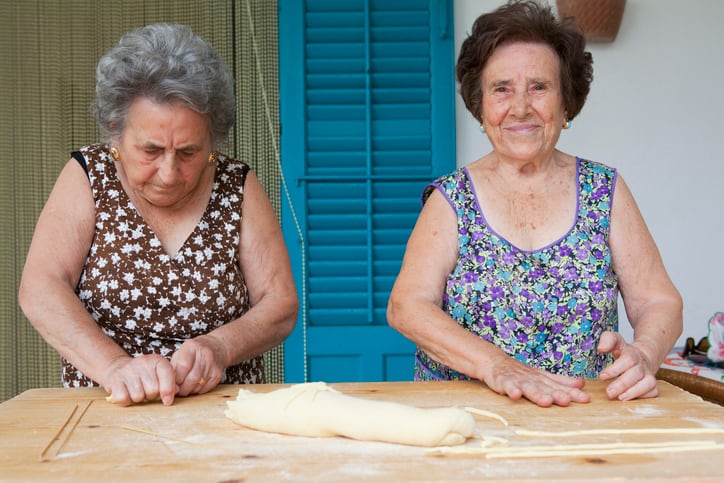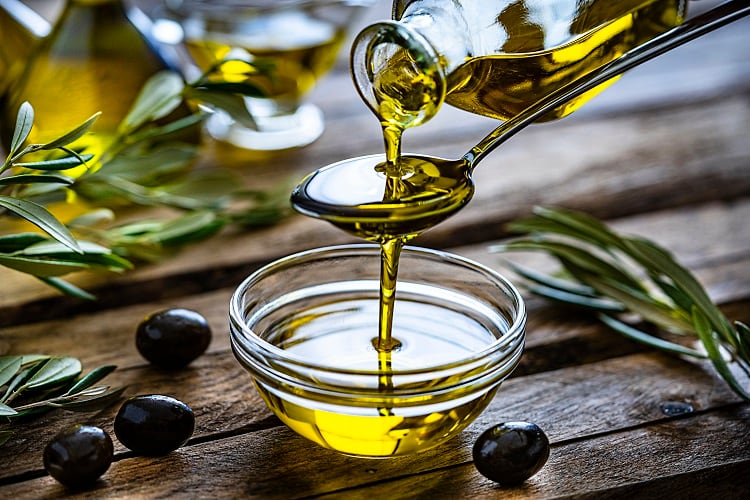Georgia Meloni’s government has approved the ‘Made in Italy’ bill, which contains proposals aimed at promoting and protecting products that have strong cultural roots.
It comes as Italy’s falling birth rate is causing alarm in the country. A brain drain as young people leave Italy for education or jobs abroad is a further concern.
The proposals therefore aim to both grow the economy, as well as promote social inclusion and support young people – particularly female entrepreneurs.
According to the government, the bill is intended to be a step forward in the promotion and protection of Italian excellence, both at hom and abroad. The envisaged measures aim to support businesses, promote education and training linked to Made in Italy, enhance the cultural heritage and protect Italian products.
The bill includes the setting up of a €1 billion sovereign wealth fund to finance companies in the country’s strategic sectors, including food. This fund aims to attract capital and make direct and indirect government investments to support businesses.
In terms of education and training, the bill provides the establishment of the ‘Made in Italy’ high school, which will offer a training course aimed at promoting knowledge and skills connected to the 'excellence of Italian products and tradition'.
A new 'mentoring' scheme will also be introduced which will allow private employers to enter into contracts for up to 24 months with retired workers to provide mentoring to young new hires. For women entrepreneurs, €15 million has been set aside for the development of new female-led businesses throughout the country.
Another measure is the establishment of the national Made in Italy day on April 15 each year (the birthday of Leonardo da Vinci). This day will aim to celebrate Italian creativity and excellence, recognizing the social role and economic and cultural contribution of companies and raising public awareness on the promotion and protection of Made in Italy.
Italian restaurants abroad, meanwhile, can apply for a new ‘Italian restaurant in the world’ certification.
More green lights for the NutrInform Battery label
The bill emphasizes the Italian government’s support for NutrInform Battery, the food labelling system supported by Italy in the EU negotiations as an alternative to the NutriScore traffic-light system. The Italian government believes NutriScore unfairly discriminates against certain food products such as cheese, specialist hams and olive oil food, and it is banned in the country.
The NutrInform Battery system, the bill states, “is recognized as a functional national labelling system to promote the correct use of the nutritional indications of food products, support the Mediterranean diet and companies in the agri-food chain, increase awareness and transparency in favour of consumers”.
Also proposed is the establishment of funds for the protection of Italian geographical indications and the enhancement of biodiversity via support of traditional practices in those districts makign traditional Italian products.
Finally, as regards the protection of products, the bill provides for measures aimed at guaranteeing the recognition and origin of Italian products. An official mark certifying the Italian origin of the goods will be introduced which can be affixed on a voluntary basis by companies on goods produced in the national territory; production regulations will be adopted for typical products of specific geographical areas; while new technologies will be used for product traceability through the establishment of a national catalogue set by the European Blockchain Service Infrastructure.

The president of Italy’s food industry association Federalimentare praised the bill, calling it “an initiative of high social and economic value aimed at the development of the country, to which the food industry can make a great contribution.
“Of great importance is the establishment of the Sovereign Fund in support of strategic supply chains, to which food companies can also resort, in particular for exports, which still has ample room for growth.”
Proposals including the promotion of the NutrInform Battery label; quality certification for Italian restaurants abroad; and support for female entrepreneurship will protect Italian products and food culture, he said.
“Transforming raw materials into products with an extraordinary and unique taste is not a skill that can be bought on the market. The three articles dedicated to training will allow the know-how of our entrepreneurs to be transferred to the new generations: a real competitive advantage to be valued and protected.
“The food industry sector wants to continue to make an important contribution to the development of the country. Italy needs a great alliance for growth involving the public and private sectors, and this bill is a concrete step in this direction.”
Costly and needless food nationalism?
Much has been made of the links that Meloni’s Brothers of Italy party has with the country’s fascist past. The prime minister describes herself as ‘conservative’ and ‘centre-right’. This hasn’t dampened concerns expressed in some quarters that the Made in Italy bill is evidence of the government’s more nationalistic traits beginning to become apparent.
These fears are probably being overplayed, said Luca Bucchini, Managing Director of Italy-based consultancy Hylobates' and an expert in food regulation.
“One has to be careful to exaggerate the Italian food nationalism because France has for some time implemented similar measures,” he told FoodNavigator. “On the other hand, there is a tension between Italy's food nationalism and Italy's reliance on exporting foods. In other words, Italy needs the single market and open markets to prosper, so there is a limit to how much food nationalism Italy can promote. Fragmenting the single market - as in the case of Nutrinform Battery, for example - may provide advantages to national businesses, but it also increases costs for Italian food manufacturers doing business across the EU.
“The ‘made in Italy’ bill is a mix of many things, and as for all bills we will need to wait and see what really becomes law.”





